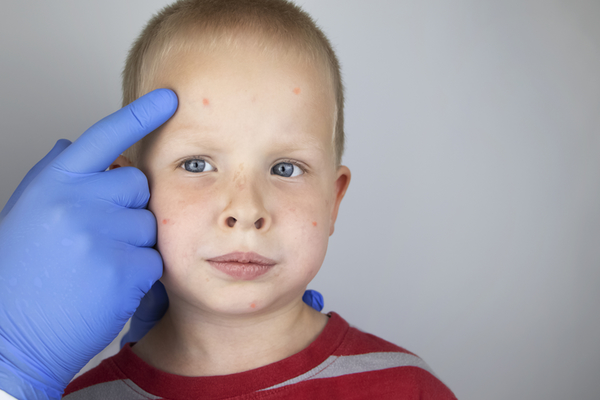
If something gives us an allergic response, the majority of us can not help ourselves from appreciating the allergen - like eating particular foods, petting furry critters hanging out with buddies in the pollution-filled city.
When you have an allergic response, your skin might begin to acquire red and patchy. Maybe you're suddenly getting this response, and you have never been contagious before.
However, who should you see to get this medicated, a dermatologist or an allergist/ immunologist? Let us take a peek at both of these distinct kinds of health care specializations, and that would be best to diagnose and cure your skin response.
Both of these professions involve helping patients to boost their health. Professions as a dermatologist or an allergist/ immunologist require strong social skills and the desire to aid others. A dermatologist can treat problems like acne or skin cancer. By comparison, an allergist concentrates on the wider medical problems, like lupus or other autoimmune diseases.
Now let's understand who is Dermatologist?
A dermatologist specializes in skin ailments, such as CIU. Your trip with a dermatologist may start off having a comprehensive medical history followed by an examination, but do not expect a battery of tests.
As a dermatologist, you might have your practice or function within a group. Dermatologists conduct individual assessments to diagnose and cure skin ailments or problems. You can assist patients with different chronic conditions, such as psoriasis, by creating treatment strategies that might include topical lotions or antibiotics. Dermatologists also work with individuals suffering from skin cancer by running biopsies and providing awareness on the importance of shaving cream and executing skin self-examinations. You need to successfully pass the examination for your health care license and then you will have the choice to finish board certification from the American Board of Dermatology.
Job duties of a dermatologist comprise:
- Administering procedures like chemical peels to lessen the signs of sun damage or age stains
- Examining patients to Find out if they qualify for aesthetic surgery such as liposuction
- Providing training and guidance to health students
- Assessing and providing treatment for pigmented lesions such as congenital or Spitz nevi
Allergist/Immunologist
Allergists/Immunologists are doctors who have specialized in handling allergies. They have training in allergy and immunology. They also possess sufficient instruction in internal medicine or at any of their subspecialty of internal medicine such as dermatology, pneumology, pediatrics, etc.
An allergist is a sort of internal medicine specialist, together with many in the area starting their clinic or becoming a part of an existent one. Allergists primarily identify food or seasonal allergies by using skin prick or hypersensitivity tests to correctly diagnose ailments.
You'll also work with individuals suffering from ailments like hay fever or asthma. After a patient is diagnosed, allergists develop individualized treatment programs for individuals to increase their wellbeing. Then you'll have to finish a two-year schedule of further training via an American Medical Association-certified application and be certified through the American Board of Allergy and Immunology.
Job duties of an allergist comprise:
- Conducting patient responses to discuss their current problems and medical history
- Recommending treatment drugs such as antihistamines or prescription medicine
- Engaging in continuing education to ensure you Stay present on knowledge and tendencies in the area
- Serving as an advisor to healthcare providers or other caregivers

When to Find an Allergist or a Dermatologist
If You're experiencing one or more of these, consult with an allergist:
But If You're experiencing some of the problems below, consult with a dermatologist:
- Intense acne
- Hair or Skin infections
- baldness
- Age stains
- Wrinkles
A surprising place, mole, or increase on or under the epidermis
You might have epidermis ailments or respiratory reactions which arise because of allergies of several types, such as from pollen, mold, food, or dander. You could also find an allergist for asthma.
This, may include nails, hair, and mucous membranes (lips, nose, and eyes). It's a great idea to have a yearly dermatological checkup to help avoid skin cancer; Doctors often cure acne, psoriasis, and rosacea.
Qualification
All doctors need a bachelor's degree, usually in a related discipline, before entering medical school. Many doctors also finish specialized training applications known as fellowships that may endure for many decades. Then they spend two decades within an allergy/immunology fellowship. Dermatologists invest a couple of years in residency, but a fellowship is discretionary.
What Can They Do Daily?
While overall dermatologists treat and handle skin ailments, a number of them specialize in cosmetic procedures. Some dermatologists invent products that could help reduce signs of aging and enhance the look of scars or blemishes. They're also able to perform procedures like liposuction for fat reduction, cold treatment for decreasing pockets of fat, and injectables like Botox or collagen for more youthful skin.
Allergists are trained to recognize causes for allergic reactions. They have various sorts of gear and procedures to run allergy testing on a patient to ascertain what's causing the patient's rash or red skin spots (or respiratory responses ). An allergy evaluation uses tiny quantities of known allergens from the individual's skin to search for a response; when there's a response in a specific place, the allergen is recognized -- and therapy can start.
Salaries
As doctors, allergists and physicians are usually well paid. The Bureau of Labor Statistics doesn't monitor allergists or dermatologists individually from doctors and surgeons, that had an average yearly salary of $184,650 in 2011.
Common Specifications Of The two Specializations
The two allergists and physicians treat patients of all ages. Both have to become both medical physicians (M.D.s) or doctors of osteopathy (D.O.s) before their internships before focusing on their residency applications. Some follow up their residencies with fellowships to participate in research and education in a place of particular interest. Allergists and dermatologists must always maintain improvements in their specialties. Board-certified dermatologists retake examinations every 10 decades.
Associated Careers
If you'd like to be a dermatologist, think about a task as an optometrist, as equally, professions specialize in treating a particular field of the human body. Those considering a position as an allergist may be considering a job as a physician assistant, as equally tasks require providing direct patient care.

Leave Comment Below
0 Comment(s)